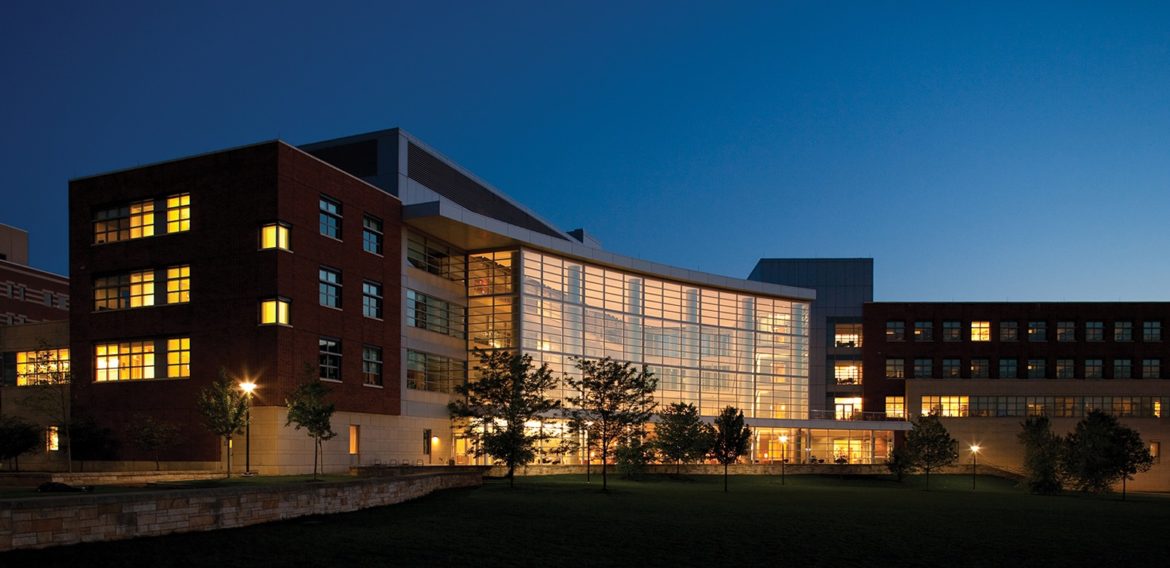Smeal College of Business- PSU
Michael Waldhier, Director of Admissions, MBA & MMOL, Smeal College of Business What is the one area of your program that you wish applicants knew more about? I think one of the most unique aspects of the Penn State Smeal MBA Program is the extremely tight-knit nature of the class. We only accept 60 students per year, and our students spend a lot of time together both inside and outside of the classroom. The end result is a program where each student feels like part of a family, rather than simply a member of the cohort. What’s the single most exciting development, change, or event happening at you MBA program this coming year? We review and revamp the MBA curriculum every few years, and just completed this process for the incoming class. The end result this time is something we’re very proud of: the ability for each student to truly customize their MBA experience. To achieve this, we introduced almost 20 coursework options that students can take to focus their MBA in unique areas. Some of these options include Six Sigma, Marketing Analytics, Sustainability, Real Estate, Corporate Innovation, and Healthcare. Walk us through the life of an application in your office from an operational standpoint. What happens between the time an applicant clicks “submit” and the time the committee offers a final decision (e.g. how many “reads” does it get, how long is each “read,” who reads it, does the committee convene to discuss it as a group, etc.) We process applications on a rolling basis, so once an application is 100% complete, we typically begin our review within a few days. It is reviewed by three to four individuals from the admissions and career services teams and then discussed in committee to make an interview decision. This process typically takes 2-4 weeks depending on application volume. Applicants choose when to have their interview, and once that is complete, the committee reconvenes for a final decision. This last step in the process takes 1-2 weeks after the interview. How does your team approach the essay portion of the application specifically? What are you looking for as you read the essays? Are there common mistakes that applicants should try to avoid? One key thing they should keep in mind as they sit down to write them? Our essay question is really to get at the heart of why someone wants an MBA, what they intend to do with it, and why Penn State might be the right place to obtain their degree. The purpose of the essay is exactly that – we use it to judge if we can help each applicant achieve their goals, and if those goals are in line with our program’s strengths. Therefore, it is most important that candidates articulate those goals clearly and describe why they are important. In all cases, we want an honest perspective – when an applicant tells us what they think we want to hear, it’s a good way to get into an MBA program where they may not be satisfied with the outcome, because they weren’t honest with themselves up front. Being truthful and being yourself is more important than trying to follow the safe, middle-of-the-road path. Do you have any application tips (for essays & recommendations) for MBA applicants? As mentioned, be honest in the essay, and use it to showcase your background and to let your personality shine through. Most admissions teams want to get to know the real you, blemishes and all, to see if you fit with the culture of the program. It’s also very important to demonstrate coachability. Openly discuss a time you failed, or received constructive criticism, and then describe how you used that criticism to improve yourself. This shows you are still learning, still growing, and how you might apply the lessons you get in the MBA. For recommendations, choose people who you have worked with and that can talk about a time you succeeded and also perhaps a time when you failed. All of this paints a much clearer picture for us, and makes us want to know more about you in an interview. What are the most important aspects of the MBA application process besides GMAT score, prior GPA and current job position? One aspect that is somewhat unique in our application is our video application questions. We ask each applicant to answer 5 randomized questions on video using their computer, tablet, or phone. The questions are highly varied, and the candidate has 30 seconds to think about their answer, and one minute to speak. There is only one chance to answer the question. This tests an applicant’s ability to act under pressure, and respond in an interview style environment. It’s also a bit stressful, so it tends to let the real person shine through, which is really what our application process is all about. How can a candidate overcome a lower GMAT score? Like many programs, we review applications very holistically. No one component is automatically going to result in a deny decision. If you think you are weak in one area (GMAT, GPA, work experience), do what you can to make up for the deficiency somewhere else. A great recommendation can overcome low work experience, and showing initiative by taking a pre-MBA accounting or finance course can make up for a low GPA or GMAT score. What resources are available at your MBA program to assist with internship and full-time job opportunities? We have a full-time Career Services team on staff to work with our students to improve resumes and interview skills, and help our students find the right internships and full-time jobs. We also have a full-time Employer Relations team to connect our students with new companies who are looking for MBA talent. Finally, each student is assigned an alumni mentor and a second year MBA mentor who can help them with mock-interviews, resume workshops, and career guidance. Generally, 100% of our students get internships, and approximately 90% of them start full-time jobs within three months of graduation.


